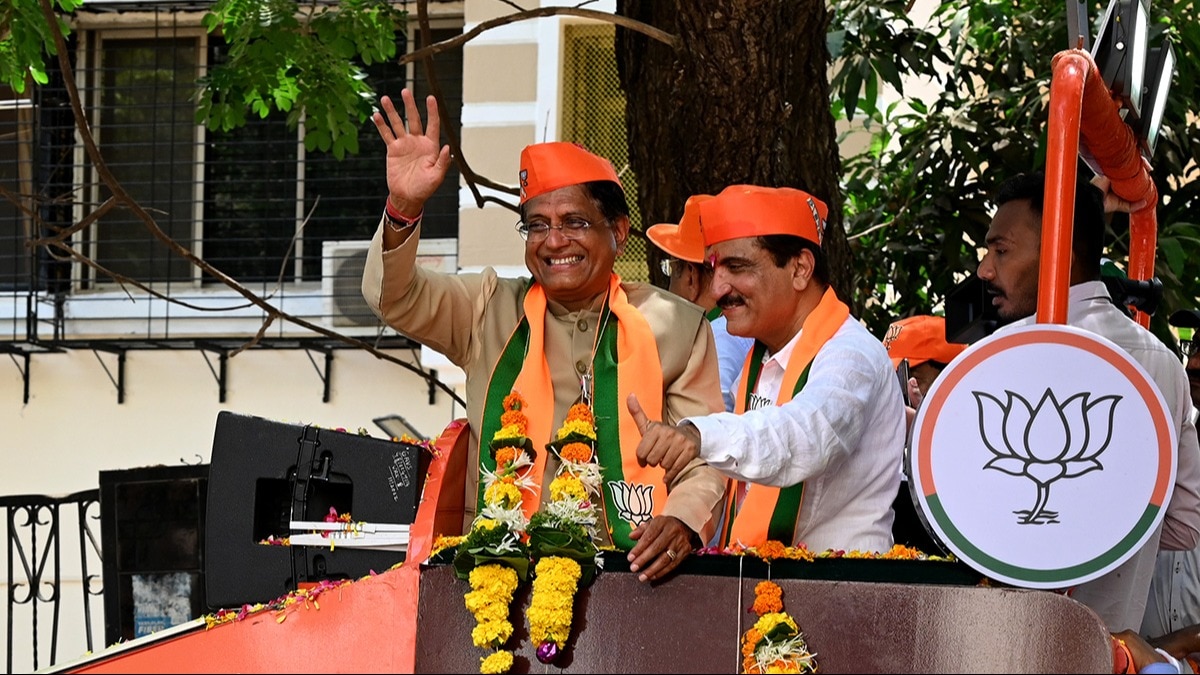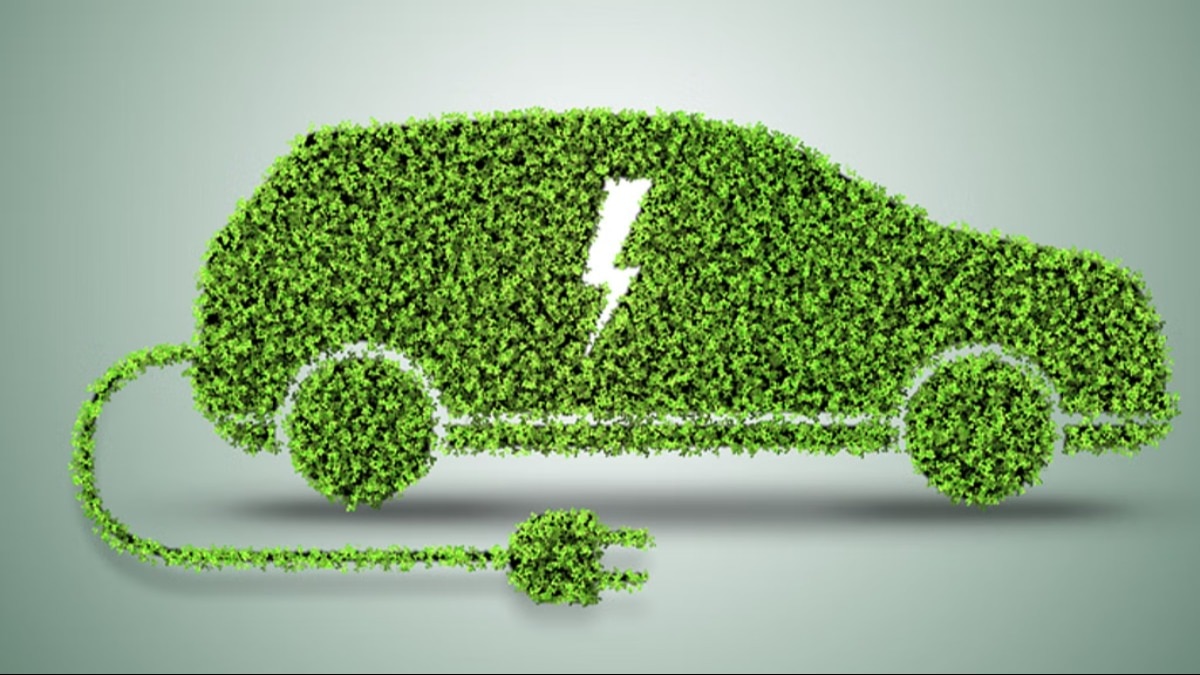Modi is the only issue in this election: Piyush Goyal
(NOTE: This article was originally published in the INDIA TODAY edition dated May 20, 2024)
On the campaign trail in the Mumbai North constituency from where he is fighting the Lok Sabha election, Union Minister Piyush Goyal spoke to India Today Group Editorial Director Raj Chengappa and Senior Associate Editor Dhaval S. Kulkarni on a range of issues. Edited excerpts from the interview:
On contesting
Piyush Goyal (PG): It’s an exhilarating experience. It gives tremendous opportunity to connect with the local people, a sense of belonging and a feet-on-the-ground feeling. I will ever be grateful to PM Narendra Modi for the opportunity.
On slum development in his constituency
PG: In ‘Modi ki Guarantee’, the first chapter is ‘Garib Parivar Jan’ where we have talked of redevelopment of slums. We will give them a house in the same place, in Uttar Mumbai. With the PM’s blessings, I will make sure this is the first area in which everybody gets a home and has a good quality of life.
On the electoral outcome in Maharashtra
PG: Both Uddhav Thackeray and Sharad Pawar are trying to create a story of sympathy for themselves, but people have recognised that both only want their children to come to power. Both have failed to do work for the state. That is why you see that all their MLAs and their parties have gone with either Eknath Shinde if they are with the Shiv Sena or with Ajit Pawar if they belong to the Nationalist Congress Party (NCP).
On BJP engineering splits
PG: We have not engineered any splits. All the Sena MLAs know that they won the assembly election because of Mr Modi’s leadership and [Devendra] Fadnavis as CM. It is Uddhav who treacherously backstabbed Fadnavis and Mr Modi. We had announced Fadnavis as the next CM with Uddhav sitting on the stage. It is a figment of his imagination and greed for power to think otherwise. He stands totally exposed and people have lost all faith in Uddhav Thackeray and Sharad Pawar. That’s why the whole of Shiv Sena came and joined hands with us as did the NCP, apart from Raj Thackeray. They all recognise that Modi is good for the country.
On the main issue in this election
PG: It is Modi all the way—there is no other issue. The biggest issue is trust and when we say ‘Modi hai to mumkin hai’, it comes out of the fact that whatever he says, he delivers. I never thought in my lifetime—I have been in politics for 40 years—that Article 370 would go out from the Constitution. On the Ram Mandir, senior VHP leaders used to say ‘prabhu ki ichha hai, banega’, but Modi made it happen. I have gone through the 2014 and 2019 manifestos…there is action on every single point. He is a man of conviction, not false promises, that’s what the people like. The women and young are completely behind Modi. That is going to be the swing factor which will take us past 400 seats.
On Congress’s comment on redistribution of wealth
PG: This is a dangerous trend. It is going back to the fossil age. We all remember how the estate tax was 85 per cent. The Congress is talking of redistribution of wealth by taking it from the people, we are talking of raising the incomes of the whole country and taking everybody along the way.
On the Opposition’s demand for caste reservation
PG: The Opposition seems very keen on Muslim reservations. The Constitution just doesn’t allow that. They want to foist this unconstitutional act as a part of their appeasement policy. And they want to take away the reservation from the SC, ST and OBC which the BJP and NDA will never allow.
On calling Muslims ‘infiltrators’
PG: The CAA doesn’t take away the citizenship from any Indian. Those communities who are in a minority in our neighbouring countries, like Jains, Buddhists, Hindus, are those that we are giving citizenship to, and not those who belong to the majority communities in Islamist countries. Indian Muslims are a part of us and will remain so.
On the Muslim vote
PG: Never before have they come out in such numbers for our rallies. I am amazed at the response. They know that Modi is doing things for all of them and not asking what their language, caste or religion is.
Apple helped users from losing over $7 billion in last 4 years through fraudulent apps on App store
The Apple App Store offers a portal for iPhones and iPads to a vast universe of apps, offering everything from entertainment to productivity tools. However, within this digital store also lurk hidden dangers. There is always a danger of fraudulent apps developed to steal users’ financial information or trick them into unwanted purchases. According to Apple, in the last four years, they’ve stepped up their efforts to combat this threat. The tech giant revealed that it has reportedly prevented its users from losing a total of over $7 billion in potentially fraudulent transactions between 2020 and 2023, with a significant $1.8 billion blocked in 2023 alone.
According to Apple, ever since the launch of the App Store in 2008, it has consistently kept users safe from fraud and other online threats they might encounter while using the App Store through continuous efforts. These efforts include the company’s App fraud prevention policy reviews and more.
How Does Apple Keep Users Safe?
Apple reveals it employs a multi-layered approach to ensure App Store security. Here’s a breakdown of their key strategies:
Account Fraud Prevention: Apple actively scans and identifies fraudulent developer and customer accounts. In 2023, the company reportedly terminated nearly 374 million accounts suspected of fraud and abuse. This proactive approach has also led to a decrease in developer account terminations (118,000 in 2023 compared to 428,000 in 2022) by preventing the creation of fraudulent accounts in the first place.
App Review: Apple also makes every app submission undergo a rigorous review process by Apple’s App Review team, consisting of over 500 experts. In 2023, the company reviewed a staggering 6.9 million app submissions, rejecting over 1.7 million for various reasons, including privacy violations and fraudulent activity. This Apple team also plays a crucial role in identifying deceptive tactics used by bad actors. For instance, the team has uncovered apps disguised as photo editors or games that transform into illegal streaming platforms or predatory loan services after review.
Ratings and Reviews: Meanwhile, to maintain the integrity of user reviews, Apple removed nearly 152 million fraudulent ratings and reviews in 2023, ensuring users have access to genuine feedback when making app choices.
As for financial security, Apple reveals that when using Apple Pay for purchases, users’ actual credit card details are never stored on their device or Apple’s servers. Additionally, Apple leverages advanced technology and human review to detect stolen credit card usage. In 2023, they prevented over 3.5 million stolen cards from being used and banned over 1.1 million accounts from further transactions.
Notably, Apple’s dedication to security is aimed at both users and developers. Users can download apps with confidence, knowing there are safeguards in place to protect them from fraud. Developers, in turn, have access to a reputable platform to distribute their creations. “ By thwarting the fraudulent efforts of bad actors, Apple ensures users can install software onto their personal devices knowing there are a number of safeguards in place to protect them, and developers have a reliable store with a strong reputation to distribute their apps and games,” says Apple.
Top carmaker plans to manufacture EVs in India. It’s not Tesla or BYD
Tesla might have postponed its entry into India despite the new EV policy, but Stellantis is considering manufacturing electric vehicles (EVs) in India, reported The Economic Times (ET).
The world’s third-largest carmaker plans to do this by working with a Chinese electric vehicle company called Leapmotor at its facility in Thiruvallur, Tamil Nadu.
Stellantis owns several brands, such as Chrysler, Citroën, Fiat, and Jeep.
India’s electric vehicle policy was something that was negotiated by Tesla but it “certainly helps,” Carlos Tavares, the chief executive of Stellantis told ET.
“This (the EV policy) is an opportunity that we did not study yet, but I understand the intention and I understand why you can be able to win (investments) for the country and from the carmaker that will come with EVs,” Tavares told ET on a video call.
India announced a new policy on March 15 to encourage investment in local manufacturing of high-end electric cars.
The government said it will allow the import of completely built-up electric cars that have a minimum cost, insurance, and freight value of $35,000 (Rs 29.2 lakh) at 15% import duty for a period of five years if companies make a minimum investment of $500 million to start local manufacturing.
Leapmotor for now is looking at selling affordable electric cars in India, which will mostly be priced under the cap specified in the policy.
Tavares said Stellantis is already manufacturing EVs in Thiruvallur under the Citroën badge and has sold fleets of the eC3 car to several companies in India.
“So far it’s moving quite well, and I know that the local team is quite happy with those B2B sales,” the Stellantis CEO told ET.
Tavares further said that Leapmotor vehicles will make their way to India in the second wave of global expansion of the newly formed JV, Leapmotor International, in the last quarter of 2024.
“Any manufacturing facility that we have around the world can be used to support the profitable growth of Leapmotor overseas. We have a (production) capacity of 90,000 units at Thiruvallur, and so far it’s not saturated,” he said.
“While it is too soon to say, but as we both know the tariffs to import CBUs in India are very high. Most probably, if we are to bring Leapmotor to India, it would have to be through local manufacturing as it is for all the other brands we have,” the CEO told ET.
He did not specify details of additional investments required to commence local manufacturing of EVs from Leapmotor in India. The company is looking at introducing a small A-segment car, T03, and a D-segment vehicle, C10, to begin with.
Stellantis currently sells vehicles from Jeep and Citroën brands in the country. Citroën-badged vehicles are made in Thiruvallur.
In addition to local sales, Tavares said Stellantis is looking at leveraging India as an export hub to ship out more vehicles, particularly to markets in Southeast Asia.
In response to a question on whether Stellantis is looking at exporting electric vehicles under the Leapmotor badge from India, he said that they are already exporting vehicles C3 and eC3 out of India to Southeast Asia.
“We are already exporting vehicles – C3 and eC3 – out of India to Southeast Asia. So that’s something that we are eager to do. We will try to continue to expand the exports out of India to Southeast Asia at this stage,” Tavares told ET.
Citroën, a relatively new entry in the country, exported 3,278 vehicles last fiscal year compared with 204 units in FY23.
Citroën recently announced fresh investments of Rs 2,000 crore in India for various initiatives including introducing new vehicles with petrol as well as electric powertrains.
Amsterdam-based Stellantis on Tuesday signed a binding agreement with China’s Leapmotor to form Leapmotor International, after they received regulatory approvals for the joint-venture deal. Stellantis controls a majority stake of 51% in the JV.
Stellantis acquired about 21% stake in Leapmotor for 1.5 billion euros in October 2023, paving the way for the formation of the JV company. The JV has exclusive rights to manufacture, sell and export Leapmotor vehicles outside of China.
“We are now in the planning phase to go to the markets and start exporting vehicles out of China to the rest of the world,” Tavares said.
Leapmotor will enter nine European countries in the first phase starting September: Belgium, France, Italy, Germany, Greece, the Netherlands, Romania, Spain, and Portugal.
The brand will be sold across 200 dealerships in the region. In the second phase, Leapmotor International will enter South America, the Middle East, Africa, India, and the Asia Pacific regions.
The JV plans to bring in a portfolio of six models to international markets by 2027. Affordability is right now the number one problem with EV expansion worldwide.
“With Leapmotor, we are going to be able to bring faster to our markets affordable EVs that will not only contribute to the profitable growth of Stellantis, but of course, they will also contribute faster and in a more efficient way to fixing the global warming issue that we have to fix as humanity,” said Tavares.




